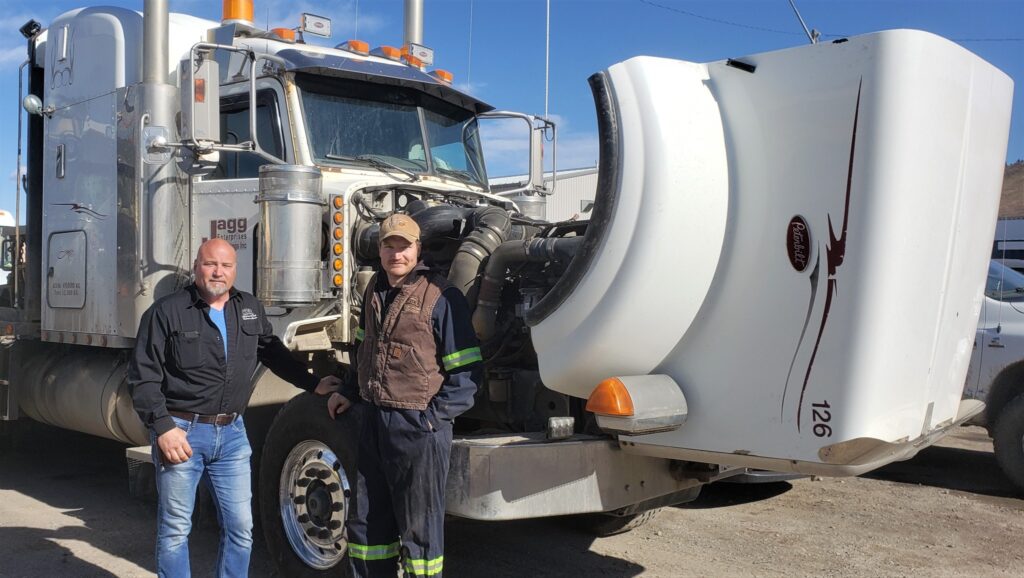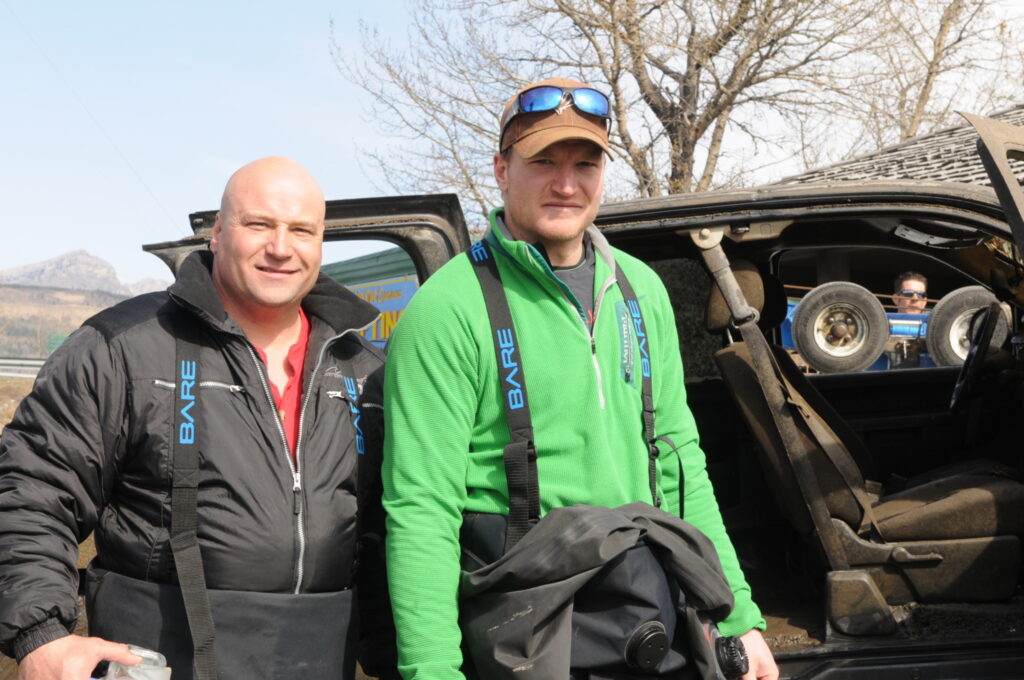Father-son technician duo gets the job done
Since the age of 12, Randy Pace has wanted to be in the business of pulling engines apart.
“Sometimes I would win, sometimes I’d lose, but I was always working on vehicles and ripping them apart,” said Randy, who left school when he was 16 to enter the workforce.
Randy met the man who would get him on the wrench and working on engines while working in a coal mine west of Edmonton at the age of 17.

(Supplied photo)
“He had gone through a couple of guys trying to find someone,” Randy said of his mentor Martin Hoffman, “and he called me on my 18th birthday – he doesn’t even know to this day that it was my birthday – and asked if I would come work for him.”
Hoffman owned a heavy-duty shop not far from Edmonton on a farm in Darwell, Alta. Starting at a modest $9 an hour, Randy began as an apprentice, working at Hoffman’s shop for three-and-a-half years, gaining invaluable experience as a technician and completing all the necessary hours to complete his apprenticeship. Fast forward a few years, Randy’s career came full circle, again working for Hoffman who was a shop foreman for Edmonton Freightliner.
“I’ve never been out of work as a heavy-duty tech,” Randy said, “not once when I didn’t want to be.”
In 1993, Randy started his own business as a heavy-duty technician, much like Hoffman, with a shop on his farm. It was then that his son Brad Pace got his first taste of what his father did for a living and what it meant to be a heavy-duty technician.

“For sure he showed me the ropes, showed me the industry and taught me a lot,” said Brad, whose first real job was working with his father on his 27-foot outfitted trailer visiting customers who needed vehicle repairs. Unsure of what he wanted to pursue as a career, Brad’s appreciation for what the world of heavy-duty mechanics could offer grew.
“I took up wrenching, and once I got into it, I enjoyed learning all the different aspects of the vehicles and all the different systems,” he said. “In heavy-duty you do get more variety than automotive techs.”
This demand is something Brad feels many young professionals in his age group fail to recognize.
“It seems like my generation and other young generations don’t want to go into the trades,” he said. “About 90% of the people I graduated with went and got a business degree, and half of them didn’t put it to use.”
Both Randy and Brad are Red Seal-certified, Brad having completed the program about 12 years ago.
In 1996, the pair relocated to the town they have called home ever since – Cochrane, Alta.
Randy worked for a period of time for Calgary Freightliner before joining Big Hill Towing, where both men work to this day. After joining Big Hill, Randy and his partner Jackie Richards, whose family ran the towing company for several years, fully implemented a technician shop as a division of the business in 2013.
“It started from there and it really mushroomed,” said Richards. “We haven’t had a quiet day since then. And then it started getting very stressful because of the demand on Randy. He’s a draw for our customers, and when people found out that he was doing mechanical work for us, people wanted to bring their things by.”
Brad came on as a technician with Big Hill the following year.
“He’s so sharp and he’s just brilliant, so that’s been very nice,” Richards said of Brad. “There’s nothing that comes our way that they haven’t been able to take care of.”
“We essentially drive computers now.”
Brad Pace, technician
Though he has learned a lot from his father over the years, Brad said each generation has their own set of unique skills.
“The industry has definitely shifted. We essentially drive computers now,” said Brad. “New trucks are coming out with 15 different control modules for all the different systems, and they’re all integrated…everything is wiring and computer technology now.”
“We used to fix things by feel and by sound. You hear a truck coming you can know what engine it was and you could also tell when they were coming down the street if they had a misfire, or something just doesn’t sound right,” Randy added. “I find that a lot of the young guys these days, the first thing they go for is the computer. But it won’t always tell you, especially on an older engine, it won’t tell you, so you have to actually put your hand on (the engine) and have a feel.”
Have your say
This is a moderated forum. Comments will no longer be published unless they are accompanied by a first and last name and a verifiable email address. (Today's Trucking will not publish or share the email address.) Profane language and content deemed to be libelous, racist, or threatening in nature will not be published under any circumstances.